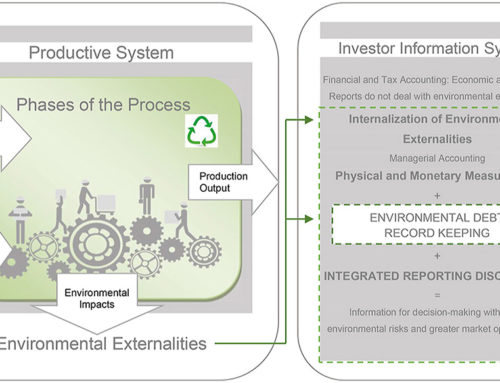First published in the Huffington Post, March 6th, 2014
When I first started working with corporations on transformative green technologies, I would discuss my excitement to other environmentalists, and they would retort: “But they’re only doing that because they’re greedy… not because it’s the right thing.” I would reply, “Who are we, the morality police? They’re taking a great leap forward.” Very few businesspeople and politicians are primarily motivated by a grand vision of a better world. Some certainly are, and we need more of them — but they are often fired or dismissed as the office nag, lunatic or nuisance. It takes a huge amount of courage to be a whistleblower or to suggest something out of the box. Keeping a company profitable is daunting enough. The lyrics from Frank Loesser’s Broadway show, How to Succeed in Business Without Really Trying says it all… the song is called “The Company Way.”
Finch: When they want brilliant thinking, from employees
Twimble: That is no concern of mine.
Finch: Suppose a man of genius,makes suggestions?
Twimble: Watch that genius get suggested to resign.
Finch: So you play it the company way?
Twimble: All company policy is by me OK.
Finch: You’ll never rise up to the top.
Twimble: But there’s one thing clear: Whoever the company fires,I will still be here.
Ain’t that the truth? But the company way ain’t gonna take us where we gotta go. Only emotional intelligence and peer pressure will help us breach the delta between today’s business as usual and a radical rethink of sourcing, operations, profits and products. While accountants and consultancies are planning the future of financial reporting, it is time for the rest of us to pave the road for true profits. That road is less about metrics and management and more about broader acceptance of the new constraints in our precarious environmental and business landscape.
You want to own your idea, or you want to manifest it? Sorry, once it’s proven to be great, your boss is likely to steal it. You want to weather a skeptical cadre of colleagues? Sorry, you’ll just have to get used to people saying you’re ridiculous until your idea gathers a few powerful champions. You want to convince your colleagues with numbers? Sorry, you need the numbers (you’d think that mountain would be work enough), but you also need to present the self-interest argument most passionately and most convincingly. You want to work as a team with colleagues who agree with you? Sorry, one or more of them is going to try to use your mutual idea for his or her own advantage and create detours, speed bumps and make-work. That’s just the way we humans roll when we are in organizations.
This is the course that survivability champions have to navigate. Medical schools now demand that med students put on the sorry little gown with the slit in the back and be a patient for a day or two in order to understand how scared patients are. When I first was told by a doctor that I had cancer seven years ago, the doctor teared up as much as I did, which gave me extra strength to enter this very scary journey. This show of compassion allowed me trust in my medical guide. Those of us who want to transform business must inspire confidence and courage in senior management and board members with a different kind of emotional understanding, but emotional nonetheless. One person’s issue might be that his or her company is losing its leadership mantle because competition has caught up, and only strong moves will re-invigorate the brand. Another company might have terrible PR problems because of socially irresponsible prior actions and is looking for very public atonement. Another company might have two board members with young grandchildren with rare cancers and their deepest love is steering their courage. Each leader’s emotional comfort zone must be present and accounted for in order to withstand the difficulties of traversing a fundamentally new course of action.
It will help if millions of people take to the streets to demand a response to climate change from the world’s leaders (both business and government). It will help if more CEOs stake their careers on changing their business models away from short-term gain over long-term value. It will help if corporate boards and stockholders are held liable for the environmental damage caused by the businesses they own and steward. It would help if politicians would stand up and work together like Democrat Ed Muskie and Republic Howard Baker did in 1970 when they got Congress to pass the groundbreaking Clean Air Act that put public health over private profits. It will help if all of us speak more openly about our fears regarding the state of the world’s environment — from extreme weather and extreme pollution and that persistent feeling that something is just not right with the natural world. It’s not courage if you’re not scared.
Then, there might be the emotional space to notice that climate chaos has already begun and our only option is to respond with the indomitable drive that nature’s fiercest weather patterns have demonstrated of late. Are we not nature’s fiercest animals?





